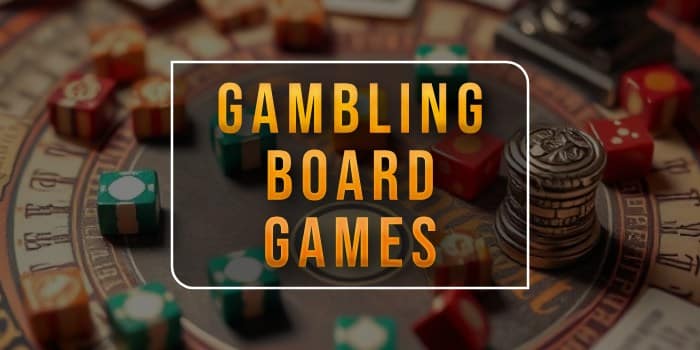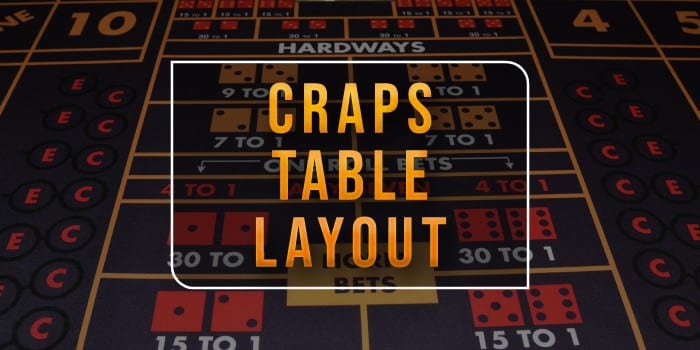- Casino
- By State
- Alabama
- Alaska
- Arizona
- Arkansas
- California
- Colorado
- Connecticut
- Delaware
- Georgia
- Florida
- Hawaii
- Idaho
- Illinois
- Indiana
- Iowa
- Kansas
- Kentucky
- Louisiana
- Maine
- Massachusetts
- Maryland
- Michigan
- Minnesota
- Mississippi
- Missouri
- Montana
- Nebraska
- Nevada
- New Hampshire
- New Jersey
- New Mexico
- New York
- North Carolina
- North Dakota
- Ohio
- Oklahoma
- Oregon
- Pennsylvania
- Rhode Island
- South Carolina
- South Dakota
- Tennessee
- Texas
- Utah
- Vermont
- Virginia
- Washington
- West Virginia
- Wisconsin
- Wyoming
- By State
- Slots
- Poker
- Sports
- Esports
- Home
- Why Is Gambling Addictive?
Why Is Gambling Addictive?

For the longest time, nobody has bothered to ask: Why is gambling addictive? People have just stigmatized it as the downfall of the individual who because of their lack of inhibitions and prudence, have fallen into bad habits.
Although things have improved, and gambling addiction is recognized as a serious medical condition, our knowledge of why gambling is addictive has not grown by too much. Continuous research into the triggers and reasons behind the why is conducted to this very day.
The good news is that we at least have working knowledge of why gambling can be so addictive and the dangers it hides. For one, gambling was designed to be addictive.
The Reason Behind Why Gambling Is Addictive
Gambling is an activity that produces dopamine, regardless of the outcome. There is something bizarre about human nature and how we can be stimulated by the prospect of a theoretical return while we stake out tangible assets and are willing to take on more risk despite the small likelihood of a successful return.
Gambling is addictive precisely because it works on a chemical level. Our brains are flooded with the feel-good hormone – dopamine – which in turn makes it harder to reason. Or put another way, we can reason that what we are doing is probably not entirely right, but our own body fires the wrong signals, making it harder to resist.
Dopamine is the same chemical that is released in our brains when we eat our favorite foods or have sex. These two activities, even when not consumed in moderation, tend to be less harmful than gambling, which can quickly cost you a lot.
The good news is that science has pinpointed the exact reason why gambling is addictive. Studies have indicated that the dopamine flood in our brains during gambling sessions is not unlike what people who use drugs get, although with gambling the sensation and “high” are more tamed, naturally.
The scientific evidence is there that this dopamine-fueled biological idiosyncrasy of the human body is what makes gambling potentially addictive. But interestingly, gambling is also treacherous in other ways – it can be misleading, and it’s designed to be that way.
Gambling Is Designed to Be Addictive – Let’s Not Deny That
Gambling companies tend to be vociferous about the need for an evidence-based approach when regulation is passed, but nobody points to the root of the reason. The fact is that gambling has been designed to be addictive.
Or if not addictive, then to keep you involved, less aware of the financial risk than would be advisable, and overall happy to cater to your every whim as long as you have money to spend. Some good has come out of the industry, of course.
Gambling operators are some of the biggest taxpayers worldwide, they employ hundreds of thousands of people if not more than a million, and they are offering competitive salaries. Still, gambling has been designed to be addictive.
Slot games, which are some of the most popular options for most gamblers, have a quick pace of play that is intentional as slower speeds may distract gamblers, bore them, and make them leave. They are also designed in such a way as to addict players and make them want to spend more.
This is itself a cardinal sin and goes against the idea that the gambling industry can fully self-regulate when even its gambling options were built in a way to bring more players in. Of course, businesses do not seek to cause harm, but they do seek to maximize profit, and without safeguards, the results can be unpredictable.
In other words, a person who walks and plays into a casino is very likely to spend a little more than they originally intended to. This is particularly true for the people whom the industry, regulators, and researchers have started to identify as “at-risk” gamblers who may be struggling with controlling their expenditures.
Wanting and Liking – Gambling Hijacks Your Brains
Digging further into the scientific evidence, there have been many insights into the nature of gambling and why it makes us behave the way we do, especially in cases of addiction. So, the brain is operating two pleasure systems that have to do with “liking” and “wanting.”
What happens to a gambling addict is that these two systems’ wiring becomes intertwined, begins misfiring, and confuses our brains and chemistry. To resist, you need a reason, but then – your entire body tells you otherwise.
Basically, in these cases the wanting system prevails – you want to gamble and play, although – admittedly, the liking is reduced. This is bizarre because we are motivated by things we like, not so much want, but in the case of gambling addiction, the opposite is true.
Then again, this is just one of the aspects of why gambling is addictive. Other research suggests that there may be some genetic reasoning after all. However, an article published in Scientific America has flatly denied the possibility of an “addiction gene” as an idea.
Born Gambling Addicts Or Turned Gambling Addicts?
Another debate that rages on about gambling addiction is whether we are born with it. As mentioned before, there is no definitive “addiction gene.” You may argue that more creative people tend to be more addictive, too, but the evidence is once again thin.
This means that we don’t understand gambling addiction all that well. Recent studies are now trying to determine whether addictive gamblers are made or born. The industry agrees about the term “at-risk” which is used to describe someone who is running a higher than usual risk of becoming addicted.
They may have been spending more money, they may already be showing a lack of self-restraint when gambling. But what motivates these people to behave like that and allows others to be perfectly healthy and safe gambling? Some people get obsessed – others are sucked into the vortex of gambling without the ability to resist.
One study argues that problem gamblers may show lower restraint and impulse control. However, the study argues that this is not the prerequisite for gambling addiction, but rather the result of it. Dr Henrietta Bowden-Jones from Imperial College London’s Department of Medicine argues that gambling addiction lowers inhibitions and makes us less able to resist.
Then again, the idea of being “born” a gambler is generally dismissed by most psychologists. Rather than being borne this way, people and individuals are influenced by exterior factors as well as their mental well-being to push into a higher level of risk-taking, seeking that immediate dopamine rush.
So, in other words, arguing that a gambler is borne is a bit wrong. Then again, there are other factors that research has been homing in.
Why Become a Gambling Addict, Then?
This a good question and it’s indeed one that modern research has been tracking to actively tackle. Are there any specific reasons why people become addicted to gambling? There are.
For one, there are environmental and family factors that can contribute. Children who grew up with parents who gamble regularly or endorse gambling as a leisurely activity are far more likely to be gamblers themselves.
They are also far more likely to tip into gambling addiction at a later stage. This is why places such as the Netherlands is prohibiting gambling advertisement to target U-21s as it’s argued that individuals are still vulnerable and can be adversely affected by gambling advertisement.
In places such as the United Kingdom and Australia, the exposure of gambling materials to children and adolescents is record high, meaning that there are some serious issues to tackle. Environmental and upbringing factors do play their respective roles in forming our worldview, including that of gambling.
As a result, many at-risk and problem gamblers today report having grown up in an environment that promoted the activity or exposed them to it. This is an important aspect. There are more reasons to consider, such as stress.
Stress has already been shown to be a pernicious influencer of human behavior. People who are stressed tend to be obese, for example, as stress can significantly interfere with both appetite and energy regulation. The same reasoning goes for gambling addiction where stress factors can push us to take up this activity in the extreme.
In short, people who are likely to develop a gambling addiction are particularly those who have been exposed to this activity as children, which seems to have a lasting impact on people’s behavior and attitude. Stress is another influencer, but not the sole driver of addiction.
Still, the fact that we live in a high-stress society, gambling companies, and research should consider this.
Can Addiction Be Clearly Defined?
Another thing that comes to mind when talking about gambling being addictive is – how can we tell. How can we know when gambling has become addictive? Is it playing two or three times a week? Is it when we spend over our allocated discretionary income?
There are different approaches, but the fact is that much has changed, and we can at least agree on what constitutes gambling addiction. In broad strokes, yes – we can all agree on what constitutes gambling addiction, which is the result of diligent decades of research and tracking trends.
Overall, addiction is defined as a condition where an individual cannot control their behavior and is motivated by a factor to the extreme. In other words, gambling addicts cannot help themselves. This is because there is pleasure derived from both losing and winning money.
Extreme spending, irritability, anxiety, lack of sleep, sudden change in social contacts, and asocial behavior are all some of the red flags that gambling addicts show. The industry though is in a much stronger position today than it has ever been to successfully track and aid such individuals.
Technology has made it possible to see immediate spending aberrations and request why this is the case. Because of the decades of evidence collected, the short answer is – yes, we can now define gambling addiction clearly and without a problem.
If Gambling Is Addictive, Can We Overcome It?
Gambling addiction is just like any other addictive disorder – it can be treated or at the very least controlled, but there are factors to consider here as well. For one, time is of the essence. So far, there are two ways to deal with gambling addiction and its addictive nature – cognitive and behavioral therapy, both of which have shown success.
Of course, treatment is also expensive, and prolonged, and the cases of relapsing are in the double digits, which means that there are more efficient ways to address the underlying issue. This is called prevention and early intervention which are far more powerful as they help individuals before their brain wiring has gone askew.
In short, gambling addiction can be overcome, but when treatment begins will determine how easy this process is for the individual and also – how likely they are to relapse.
Shouldn’t We Ban Gambling to Treat Addiction?
No, gambling is an activity that has been around for centuries. Banning gambling would only breed illegal gambling operations that would then drive gambling addiction up and put more people at risk.
Gambling needs to be overhauled – through laws and also pressure gambling companies into understanding that their products can be optimized to be less addictive. Much of this is already happening, but no matter the level of precautions and safeguards undertaken, nothing will ever change the simple fact that gambling is addictive.
Related Topics:
After finishing her master's in publishing and writing, Melanie began her career as an online editor for a large gaming blog and has now transitioned over towards the iGaming industry. She helps to ensure that our news pieces are written to the highest standard possible under the guidance of senior management.
Must Read
Legal
November 17, 2019
Philippine Gaming Operators Involved in Prostitution Ring
Casino
October 7, 2019
Haven Gaming to Build Danville Casino in IL
Casino
October 6, 2019
MGM To Pay $735M as Part of Settlement for Las Vegas Shooting
Casino
September 28, 2019
Swiss Casinos Group Partners with Playtech
Sports
September 27, 2019
Mobile Sports Betting Finally Coming to Indiana
More Articles















December 3, 2024
Boxers Who Started Late and Became Champions

November 19, 2024
Best Gambling Board Games

October 25, 2024
Top 20 Books About Gambling

October 23, 2024
Craps Table Layout

Casino
October 21, 2024
Megabucks Slot Machines

September 30, 2024
What Soccer Positions Are There and How They Work

September 27, 2024
The Best Arcades in Las Vegas

September 26, 2024
When to Double Down in Blackjack

September 24, 2024
Best Offshore Sportsbooks and Betting Sites

September 22, 2024
League of Legends World Championship: Odds, Tips & Predictions

September 19, 2024
How to Become Professional Gambler

September 17, 2024
What Is a Pachinko Game Machine?

September 16, 2024
Michael Jordan Gambling: The Good, the Bad, and the Ugly

September 13, 2024
Best Odds in Vegas – Which Game Is Superior?



